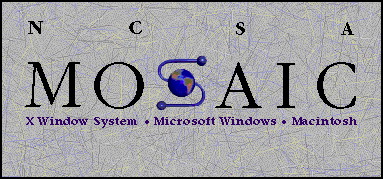A couple of days ago, I received some suggestions for improvements to a program I had written. This isn’t unusual: I’m writing code all the time, and much of it needs improving. (Thanks, Sam!) No, the surprise in this case was that the suggested changes were to a little script called newslist.py that I wrote in 1994 and haven’t updated since. It wasn’t very important or impressive, but seeing it again made me a bit nostalgic, because it was very much an artefact of its time.
For a couple of years, I had been playing with early versions of a new programming language called Python (still at version 0.9 when first I fell in love with it). In those days, online discussions about things like new languages occurred on forums called Usenet newsgroups. (As an aside, I was also playing with a new operating system called Linux, which Linus Torvalds had announced on the comp.os.minix newsgroup with one of those throwaway phrases that have gone down in history: “I’m doing a (free) operating system — just a hobby, won’t be big and professional…”.)
Anyway, the Usenet group archives are still accessible now through web servers like Google Groups, but the usual way to read them back then was to fire up a news-reading program and point it at a local news server, which could serve up the messages to you using the ‘network news transfer protocol’ NNTP. Since you wouldn’t necessarily have a fast connection to anywhere else in the world from your desktop, organisations such as universities and the more enlightened companies would run their own NNTP servers and arrange with their pals in other organisations to synchronise everything gradually in the background (or, at least, to synchronise the newsgroups they thought would be of local interest). When a user posted a new message, it would trickle out to most of the servers around the world, typically over the next few hours.
 But another novelty was catching my attention at that time… This thing called the World Wide Web. Early web browsers generally spoke enough NNTP to be able to display a message (and maybe even the list of messages in a group), so you could include ‘news://‘ URLs in your web pages to refer to Usenet content. But a browser wasn’t much good for more general news perusal because it didn’t have a way to find out which newsgroups were available on your local server. My newslist.py script was designed to fill that gap by connecting to the server, getting the list of its groups, and creating a web page with links to them displayed in a nice hierarchical structure. You could then dispense with your special newsgroup app, at least for the purposes of reading.
But another novelty was catching my attention at that time… This thing called the World Wide Web. Early web browsers generally spoke enough NNTP to be able to display a message (and maybe even the list of messages in a group), so you could include ‘news://‘ URLs in your web pages to refer to Usenet content. But a browser wasn’t much good for more general news perusal because it didn’t have a way to find out which newsgroups were available on your local server. My newslist.py script was designed to fill that gap by connecting to the server, getting the list of its groups, and creating a web page with links to them displayed in a nice hierarchical structure. You could then dispense with your special newsgroup app, at least for the purposes of reading.
When version 1.1 of Python was released, Guido van Rossum added a Demo directory with some examples of things you could do with the language, and newslist.py was included. And there it remained for a couple of decades, until, I discover, it was removed in 2.7.9 because the comment I had casually included at the top about it being free “for non-commercial use” no longer quite fit with the current Python licensing scheme. (I would happily have changed that, had I known, but I wouldn’t have imagined anybody was still using it!) The Demo directory itself was dropped in Python 3, and so newslist.py was consigned to the historical archives.
So you can understand my surprise at discovering that somebody was still experimenting with it now! I didn’t know anybody had an NNTP server any more.
What’s almost more surprising is that one of my two email addresses, mentioned in the code, is still working 23 years later, so he was able to write and tell me!
All of which tells me I should probably pay more attention to what I put in the comments at the top of my code in future…